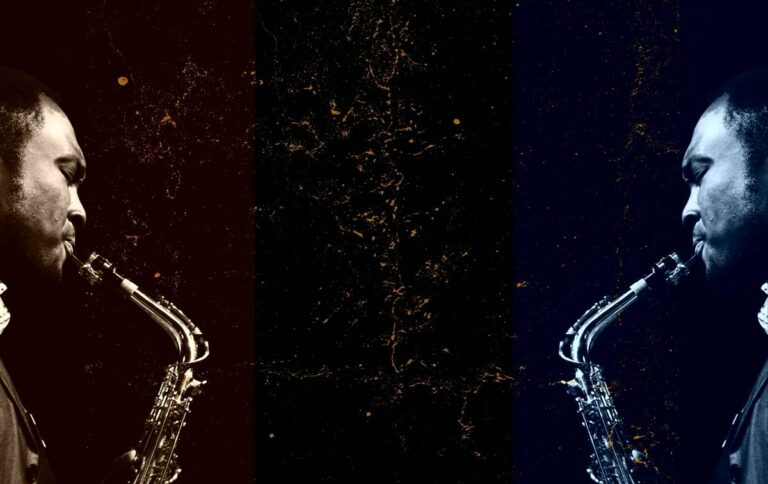Mastering jazz improvisation seems simple in theory. At least every great player makes it sound that way. And on paper it all looks pretty straight forward. Memorize the chords, learn a few scales, and listen to the masters. With a little practice and transcription you’re good to go – you can almost hear the dazzling solos you’re destined to play!
But when you actually try improvise…it’s not that simple.
And the truth is, it’s not simple for anybody.
But as time goes by certain players start to sound remarkably different, almost as if they’ve found a secret that makes the entire process easy. While everyone else is left struggling in the practice room with the same old exercises.
So what are these great players doing differently from everybody else?
What exactly is it that makes the difference between a polished pro and another amateur hacking away at a tune?
Today we’ll look at the 5 ways you can start approaching improvisation like a pro…
I) It all starts in the practice room
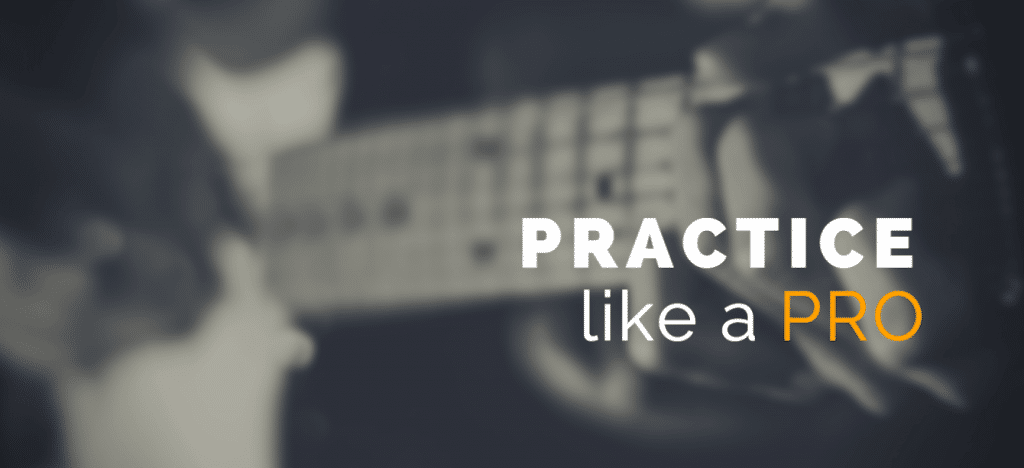
I know what you’re thinking – every musician practices.
Big deal.
But the best musicians approach the idea of ‘practicing‘ and the process of learning in a unique way. And this subtle shift can make a world of difference in your playing.
You see, most players get pushed into the practice room by external forces. Parents, teachers, peers, or even a nagging sense of duty and obligation as a musician. After all, you’re supposed to practice if you want to play music.
However, this outside pressure often leads to unmotivated and unorganized practicing. It’s you stuck in a room and staring at a music stand. Bored, frustrated, and wondering where to start…
A pro, on the other hand, approaches practice from a place of internal motivation. For them it all starts with inspiration. Attending a live performance, listening excitedly to a great record, meeting a musical hero, or discovering a new musical technique.
The sound of music awakens something within them and pushes them to create that sound in their own playing.
A musical seed is planted and practice becomes a continuous journey in pursuit of that sound. What do I have to do to sound like that?
Rather than the monotonous routine most players get stuck in, this approach leads to a different kind of practice When you look at a pro’s practice routine you’ll find them:
- Setting personal goals
- Identifying a practice routine that will achieve these goals
- Approaching practice in a productive and creative way
- Isolating small pieces of information and practicing to mastery
- Utilizing slow & focused practice on the fundamentals and areas that need work
In each of these cases, practice has a purpose. The goal is to realize that musical dream that you have buried inside of yourself and practice is the day to day work that will get you to that goal.
Aim to do this in your own practice routine. If you take control of your practice, you’ll take control of your musical progress.
II) Can you hear that? A pro can…
When it comes to jazz improvisation, the ability to hear and identify chords and melodies is one of the most important skills you can develop.
It’s no secret that the ear is vital for improvisation…
Yet many players still find themselves lost in the chord progressions of solos, unable to pick out the melody notes to a tune, and frustrated with transcribing solos by ear.
Every solo is a jump into unfamiliar territory. Every practice session with a recording is a struggle. This all goes right back to your ear – and it’s one of the major differences between an amateur and a pro.
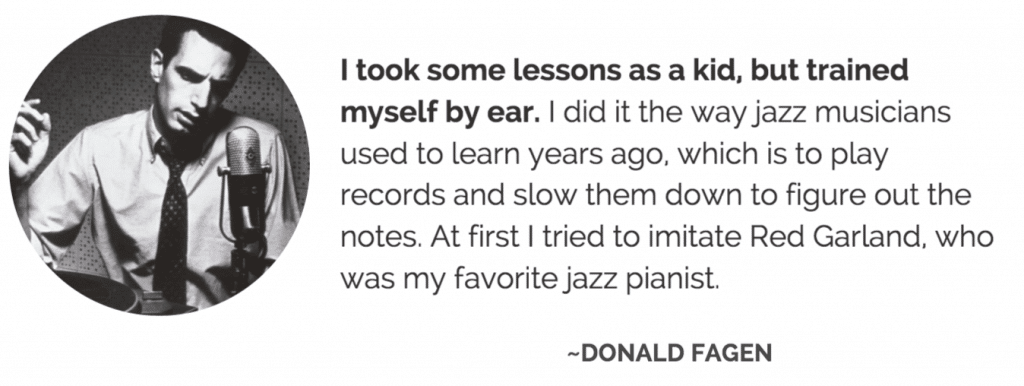
For the best players, the term “ear training” means something much more encompassing. For a pro:
- Music theory is not just note names and memorized scales, music theory is sound.
- An interval, a chord, a melody note, a chord progression – each piece of the musical puzzle has a unique sound that you must have ingrained in your ear.
- Singing is an integral part of the learning process.
- Transcribing and learning tunes starts with listening and learning from a recording.
Start developing your ear like a pro. To master your intervals, chord qualities, and chord types and take your ear to the next level check out The Ear Training Method.
I think that ear training is such a big deal, though, especially now. We’re in the information age, and you can get everything at the push of a button. So musicians have to be very complete. You have to be not only good readers and be up on the technical side of playing music, but also be able to play what you hear. That’s sometimes lacking.~ Roy Hargrove
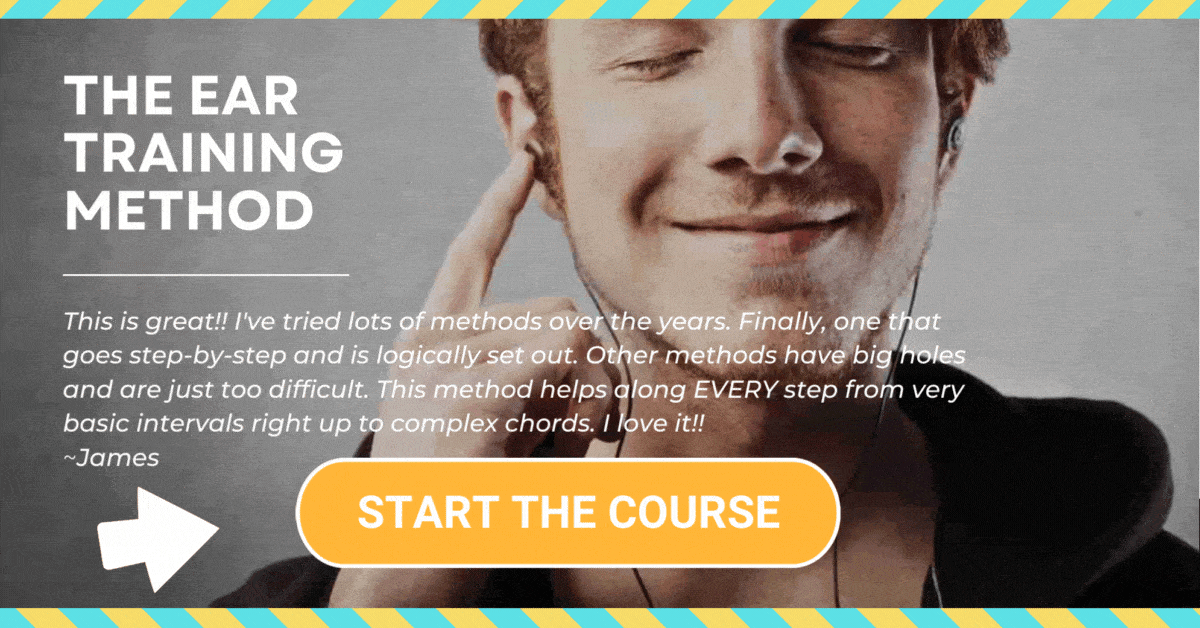
III) Mindset is more important than you think
Learning a new skill like jazz improvisation can be tough.
Especially as a beginner, where it seems like everyone else already knows what they’re doing…
There’s a point where you feel stuck, like your effort isn’t paying off, that you still sound the same even after all of that practice! You can get sidetracked by competition, discouraged by players that are better than you, and overwhelmed with nerves every time you try to perform.
And this can start to affect the way you feel about music and even the enjoyment you get out of playing your instrument.
At some point the same old practice routine is not going to help you escape this feeling of helplessness or defeat. To breakthrough to the next level you must learn to Reprogram Your Musical Mind. You need to take a look at your relationship with music and ask yourself: “Why am I playing music?“
I worked hard to maintain a certain mental and emotional equilibrium. It’s mostly due to my faith in the Creator. I don’t put all my eggs in that basket of being a rich and famous jazz guy. That allows me a certain amount of freedom, because I don’t have to play music for money. I play music because I love it.~ Mulgrew Miller
For the best players, improvising is more than just a musical exercise or a job. It’s not about winning competitions or comparing yourself to other players – they play because they love it.
Every player, regardless of skill level, will encounter challenges along the way, but it’s this conviction that separates the pros from the amateurs.
IV) Pros have language for every musical situation
If you think about it, the best players are never lost.
They’re ever guessing at the next note to play or faking it over a chord progression…
This is because pros have developed musical language for every situation.
It could be a solo over the blues, a funk tune in a wedding band, a dominant chord, or a song on the radio. It doesn’t matter. When they’re put on the spot they have something to play in every key – without thinking about it.
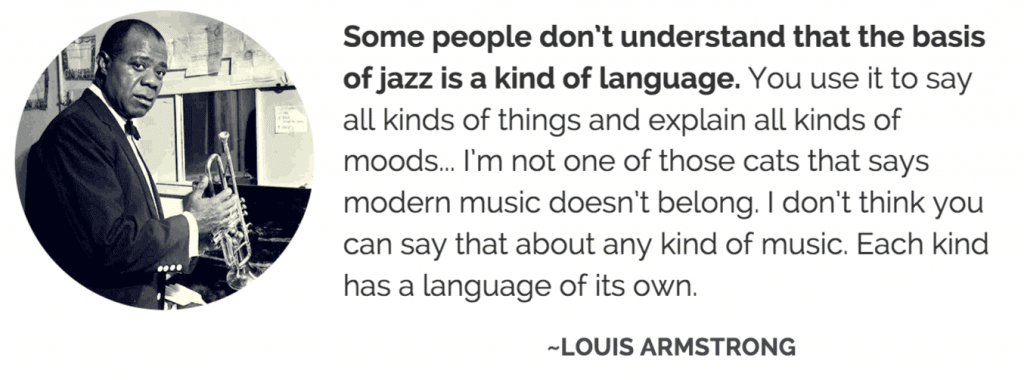
Remember, every tune that you play is composed of a finite number of chords and to be a successful soloist, you need to have stuff to play over these chords. You need Language.
The best players are not going into their solos empty handed, they’ve developed the tools they need to thrive in every musical situation.
Aim to be prepared. Go into any solo with the tools you need to sound good.

V) Get serious about style
Amateurs are worried about the notes…
Specifically playing the right ones at the right time.
But the truth is, anyone can play scales and arpeggios – not everyone can tell a musical story. And this is where the pros stand out from the amateurs.
Musical style is what give those lines character. It’s what draws the listener in and makes the solo interesting.
Sure the notes and chords are important, but the sound, articulation and time of the solo make it unique.
Just like a great painting, it’s not the techniques that affects you, it’s the story, the personality, the unique perspective of the artist that moves something inside of you.

It’s the same with music…
The unique personality of each improviser creates a unique musical voice and the best players have spent time cultivating this voice.
Amateurs sound the same: the same scales, the same licks, and the same tunes. Pros however, stand out from the crowd because they bring something personal to the table.
Which would you rather be?
Improvising can seem easy at first glance.
Scales, chords, and playing what you hear. And this causes a lot of musicians to take a less than serious approach.
But average musicians create average music. And I’m guessing, don’t want to be average.
You want to be great – even remarkable.
That means you need to approach the details of music like a pro.
Take these 5 tips into the practice room and apply them to your daily routine. The differences may be subtle, but the results will speak for themselves.
